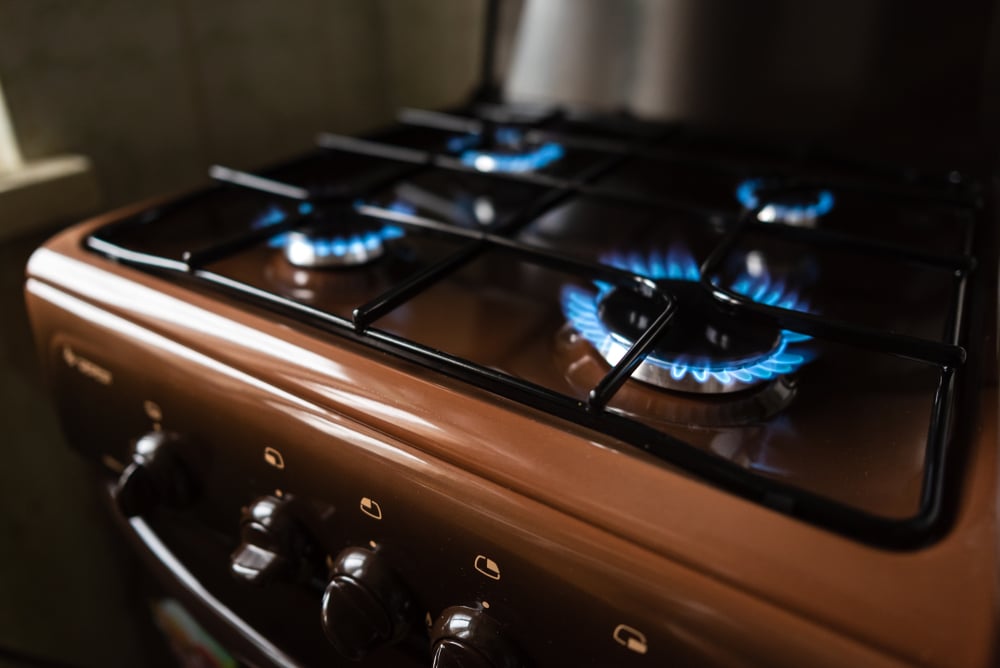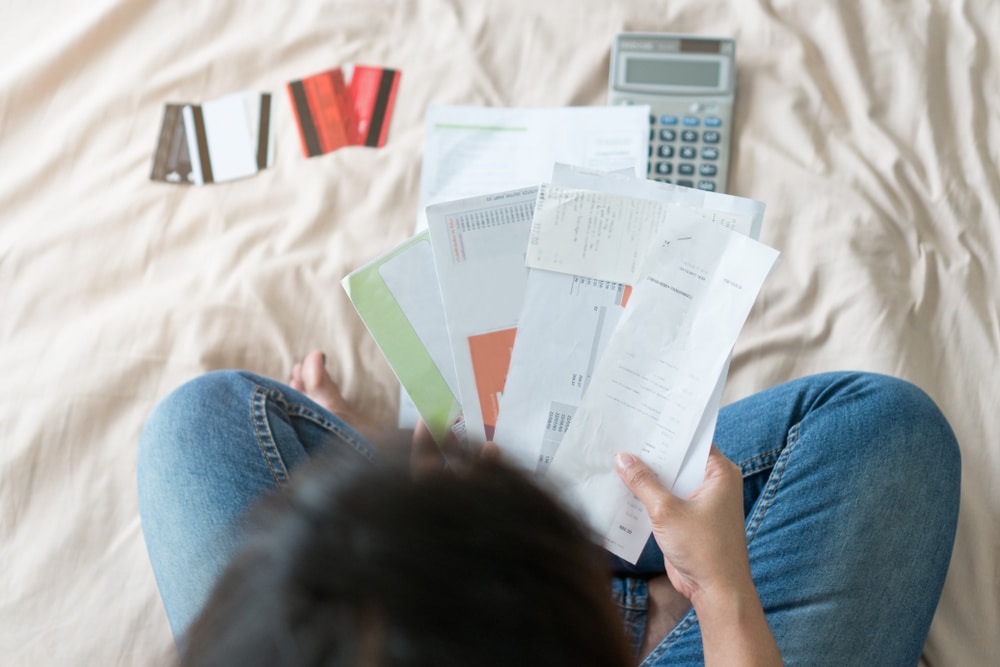Jasmine Birtles
Your money-making expert. Financial journalist, TV and radio personality.

Environmental tax, often referred to as Green tax, is a hot topic within the UK currently. With energy prices already increasing and the strain on the general public’s purse strings ever growing, money is tighter than ever. In fact, it is estimated a whopping 18 million brits worry about money at least once a day.
So, it has been worrying to hear news from Ofgem, suggesting the current average of £1,277 paid per household for gas and electricity annually is set to rise sharply. This is due to increases in wholesale gas and electricity and the rise in the Government’s energy price cap.
Green tax includes taxes on pollution, transport and other resources. These taxes also include energy taxes, which are taxes on energy products and electricity. Energy products may include fuel used for transport, as well as natural gas, coal and electricity.

Green taxes have existed for many years; however, they are expected to rise sharply this year. With another energy price cap increase being introduced in April, it is expected energy bills will rise yet again.
In 2019, green taxes totalled approximately £11.7 billion. According to TaxPayers’ Alliance, these tax revenues are likely to rise to £16.7 billion by 2023, a staggering increase of 40% in just four years.
But why must we pay green tax? The UK Government have made a statutory commitment to reduce carbon emissions by 68% by 2030. They have also pledged to achieve net zero emissions by 2050.

The green tax currently makes up a whopping 15.3% of your energy bills – approximately £195 per year. It pays for various ‘environmental and social costs’ – namely schemes set up with the goal of sustainability and lowering carbon emissions.
Such schemes include:
This is a tax charged for the burning fossil fuels. It is paid by your provider from the tax you have paid. The levy is 0.46p for every kWh of gas used and 0.78p for the electricity generated by fossil fuels. This raises a huge £2 billion annually.
Gas-fired power stations still provide almost 40% of electricity in the UK. This levy was put into place to subsidise the development of biogas. This is a fuel derived from vegetable matter. This levy will begin in the spring of 2022.
This scheme came into play in 2017. This is where renewable energy providers are given a set price per kWh of electricity used. If the market price of electricity falls below this set price, a public body named the Low Carbon Contracts Company subsidise the amount lost. In other words, this amount is paid for with taxpayers’ money.
Arguably one of the most frustrating parts of increased energy bills is the feed-in tariffs. This is where owners of domestic photovoltaic solar panels are actually paid to generate electricity. They are paid per kWh of electricity they generate – even if they use this electricity themselves! In 2019, these payments cost a massive £1.9 billion.
These are just some of the schemes the green tax pays for. The tax also contributes to the provision of Smart Meters by energy providers and the recent government boiler upgrade scheme. Similarly, it contributes to financial benefits such as The Warm Home Discount, which provides a discount on energy bills for those on low incomes.

The cost of living is already increasing substantially as the result of a perfect storm of events. The Coronavirus Pandemic is the most obvious global event which has put a strain on our wallets. High inflation rates have also contributed to a boost in prices.
Most of us will feel these tax increases through increased gas and energy bills. Similarly, fuel costs are likely to see an increase. In November 2021, fuel costs hit record highs – you may remember the fuel crisis which saw millions run to panic buy petrol.
Increased fuel and energy costs will trickle down and impact the cost of other goods and services. For example, services such as public transport will see prices go up. The price of a bus or train ticket will rise, as businesses strive to make up for this increased taxation.
Those who enjoy a holiday every so often will also see plane tickets increase, as airlines see increased taxes on the emissions they produce.
Food prices have already started to see increases. This is particularly seen on items with a higher carbon footprint, such as exotic fruit and vegetables and items which cannot be grown or produced locally or within the UK.

There are plenty of tips and tricks you can use to reduce your energy bills. Here at MoneyMagpie, we have hundreds of articles on this very topic. In fact, back in October 2021, we hosted a free webinar all about saving money on your energy ills. You can watch it here.
You can also make money elsewhere in your budget to allow for these increased prices. Check for any unused subscriptions and cancel them if you no longer need them.
Try to cut down on takeaways and cups of coffee, as the cost of these can add up. If you buy a coffee every day on your way to work, try to cut this down to just two days a week, and make your own coffee the rest of the time. Dropping just one coffee a week can save you £144 a year!
We also hosted a free webinar this month with loads of advice about how to get your money sorted for 2022. Watch the video here.
We have so many brilliant articles to help you save money in and around your home. Why not check them out? Here are some of our favourites:

The increased cost of living is stressful enough, without increased taxes looming over our heads. We know it will be a strain on millions of households across the UK. If you are struggling or are worried about debts, there are people you can contact to help you.
If you fall behind on payments, or don’t think you are able to pay what you are being charged, contact your energy provider. This is your first port of call, to ensure they understand your situation and see how they can best help you.
Some providers may have grants available for customers who are struggling, or they may be able to switch you to any tariffs which cost less. Similarly, they may be able to set up a repayment plan for any payments missed. If you haven’t yet missed any payments but fear you might, they can arrange a payment plan which suits you.
It is always worth calling or emailing your provider. They want to help you where they can.
There are many hardships available for those on low incomes. Local councils, charities and the government all offer financial aid for those who need it. Every month at Money Magpie, we put together a list of the Hardship Grants currently available for you. You can read our January round-up here.
Energy regulator Ofgem also have great advice on their website, including available grants and debt advice.
Turn2Us is a national charity providing practical help and support for those struggling financially. There are many useful tools on the Turn2Us website, including an available grants search, which allows you to search for the grants available to you in your local area.
They also have a benefits calculator. It’s always worth checking whether there are any benefits you are entitled to. You may be surprised to see you are owed benefits you do not yet claim, which can help you significantly.
Turn2Us also award their own grants, including the Response Fund and Edinburgh Trust fund.
Money Helper brings together the Money Advice Service, the Pensions Advisory Service and Pension Wise to give free and impartial help to those struggling with money.
They have plenty of advice about paying your energy and other household bills on their website. You can also call them for free if you’d rather speak to someone.
Citizen’s Advice have lots of tools and resources to help you financially. They have advice on their website regarding paying bills. They also have free debt advice and can help with other bills such as mortgage and rent payments.
At MoneyMagpie, our number one priority is ensuring our readers have all the help they need. We have hundreds of articles to help you manage your finances, no matter your age or situation. Check out our Benefits and Debt Assistance page for more.

Yet another tax in rip off Britain.